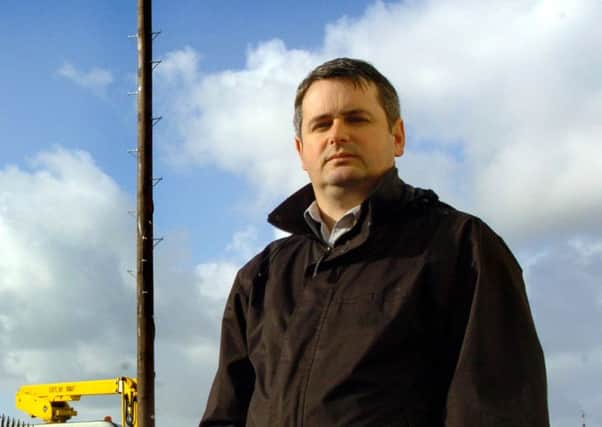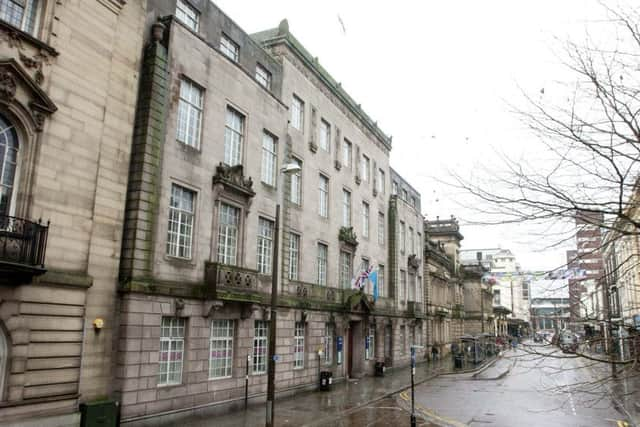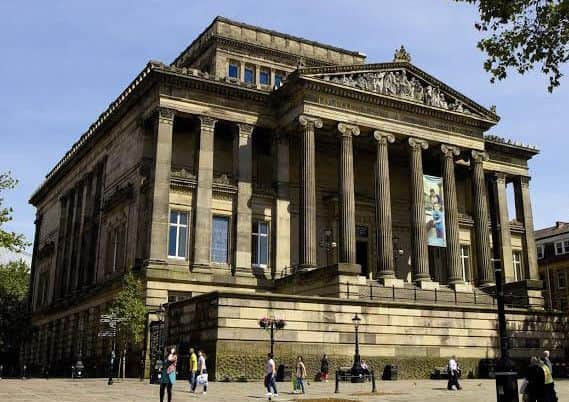The man taking calculated risks to help regenerate Preston


I’m a bit of a gambler. At the age of 14, I ran a book on the school cross country race. Even some of the teachers had a wager. I made a small profit.
While I do like a flutter, my success can be measured by the fact that I’m still working for a living; but I’ve never lost more than I could afford to lose. Every risk I take is a calculated one.
Advertisement
Hide AdAdvertisement
Hide AdAs the man in charge of tens of millions of pounds of taxpayers money at Preston Council, I have lots of advisors on risk. Council officers do a risk assessment every time they put the kettle on.


When the cuts to local government funding first started, budgeting was as simple as prioritising a list of council services and removing the least vital from the list; or slicing bits off all services in the hope that they might survive until normality returned (or so we thought!).
Money is now so tight that the question is not only how important we think a service is - but also, what are the risks of reducing or removing that service. Those risk calculations obviously include the risks to the most vulnerable but also include the risks of litigation or prosecution for not providing that service.
Another reason councils are willing to take these risks is to try to remain relevant; to continue to fulfil a role as the local conduit for regeneration, growth and innovation; even if that means failing some of our other statutory and even moral obligations.
Advertisement
Hide AdAdvertisement
Hide AdPreston is a chief partner in the delivery of City Deal, a Central Lancashire regeneration and growth program worth over half a billion pounds to the region.


Preston also has its own economic policy of Community Wealth Building, a concept borne out of ‘Austerity’ and designed to stop money leaking out of Preston and Lancashire and into the pockets of international shareholders. This idea is potentially worth over one billion pounds to the local economy.
We could concentrate on simply emptying the bins and leave this to someone else (or more likely, no one else) but we believe we are ideally placed to deliver these schemes and we need to protect the council’s capacity to do so.
Consequently, councils across the country are taking risks they never dreamed of...and some of the risks we are being forced to carry are ridiculous...
Advertisement
Hide AdAdvertisement
Hide AdFor example, until a few years ago, Preston Council was paying around thirty thousand pounds a year for buildings insurance cover against terrorist attack.


When I took the decision to drop it, we still owned the bus station and the Guild Hall.
These are expensive buildings to insure, yet on paper they are worthless; simply liabilities that cost the council money.
While there are many Prestonians who would have gladly seen the bus station blown up, we do of course need a bus station and an events arena; but would Preston Council have rebuilt either of them in their current form, in the current financial climate if they had to be demolished due to a terrorist bomb?
Advertisement
Hide AdAdvertisement
Hide AdIn fact, how many Preston Council buildings are so high profile that they may attract an act of terrorism and need immediately rebuilding in the event of damage?


Now that we no longer own the bus station or the Guild Hall, there are really only two; the Town Hall and the Harris Museum.
If the Town Hall was destroyed, we would almost certainly take one of the many empty office buildings around Preston or share space with another organisation.
If the Harris Museum was attacked, could this incredible building actually be rebuilt in this day and age? Even if it could, this is the only council building that I would truly mourn the loss of, in the event of terrorism.
Advertisement
Hide AdAdvertisement
Hide AdSo why don’t we just insure the Harris then? Well, because we can’t.
In the 1990s, at the height of IRA terrorism, insurance companies decided that the potential costs involved in covering acts of terrorism were too great.
So, the government helped set up a fund that all terrorism insurance premiums go into.
To make this fund viable, organisations were not allowed to pick and choose their most expensive buildings and just insure those. They had to insure all or none of their buildings.
Advertisement
Hide AdAdvertisement
Hide AdSo for years, Preston Council was paying to insure every workshop, depot, shop, office etc. against terrorist attack, effectively to cover just one or two valuable assets.
Also, this fund has only paid out 13 times in over 20 years. So, even if a lone nutter walked into the Harris with a bomb, there is no guarantee that the government would declare this an act of terrorism and trigger the payout. In fact, it has only ever paid out twice outside of London.
The chances of Preston ever seeing any of that money was minuscule.
We were effectively subsidising big cities for 20 years, cities that have far more resources than we do.
Advertisement
Hide AdAdvertisement
Hide AdThe real issue I now have with this system, is that the fund has only paid out a total of £600million pounds in its history (which makes the average single payout less than £50million) – and yet the fund is now worth… wait for it… £6 billion!
At the current rate of expenditure, the fund would last 200 years, even if everyone stopped paying into it now.
Despite being a little uneasy at having no cover, I could not watch anymore Preston taxpayers’ money disappear into this sinkhole that is effectively a savings club for the big cities.
It is grossly unfair that funding cuts mean that we have to carry this risk while wealthier areas are sitting pretty with access to six billion pounds should the unthinkable happen.
Advertisement
Hide AdAdvertisement
Hide AdLet’s hope no one ever needs this fund ever again, but if they didn’t, are we just supposed to keep filling this pot up forever more?
Let’s face it, it’s only a matter of time before some cash-strapped Chancellor tries to raid it!
The fund could’ve been set up so that the contributors were shareholders, in order to protect their stake and even create a return - but now we have the worst of both worlds; no cover and a fund that simply makes highly paid jobs for city financiers; we are stuck between an incendiary device and a hard place.
I don’t believe any Councillor ever thought they would be taking decisions like this when they signed up, but as I said I’m a bit of gambler, and handing over taxpayers’ hard-earned cash to the meanest (and only) bookie in town is not appealing when local services and the local economy need every penny they can get.